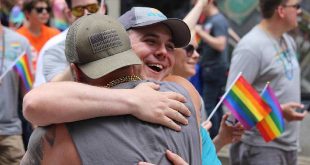Whenever there is a public emergency or a natural disaster, health centers generally become a nerve center of activity. However, when disaster is pending, health centers should take measures to ensure that they can provide the necessary assistance and resources to the area’s most vulnerable populations, including the LGBT community (LGBT Health Education. org). Specific issues health centers should be concerned about include: higher rates of homelessness, particularly for LGBT youth, making them difficult to locate in an emergency situation; LGBT seniors often live alone and don’t have children, making access to them and ensuring that they receive the right safety information in an emergency far more difficult; LGBT relationships aren’t recognized everywhere, complicating healthcare and first response issues; those in the transgender community are often placed in a different shelter from the gender which they identify; and some in the LGBT community may find it hard to trust first responders and medical professionals due to discrimination in the past. Bathrooms can be a problem for the transgendered as well. If and when possible, centers should provide gender neutral restrooms in order to save the LGBT population from embarrassment. Those in the community should also be prepared to stand up and advocate for themselves and one another in times of disaster and crisis.
With the help of LGBT community leaders, advocacy groups and others in the community, health centers should develop proper policies and procedures to deal with these distinct LGBT issues.
The staff at these medical centers should also be trained in LGBT-specific issues. Staff should be made to recognize couples without asking for documentation of their relationship status. Staff should be trained to recognize and use the preferred gender identity and name of a person who is transgender. Working with transgender people and same sex families to make their trauma and transition as smooth as possible should be a training topic for staff as well when managing an emergency situation. Everyone working for the health care center should know the policies, procedures and best practices when dealing with the LGBT community in times of crisis. Those who are on HIV antiviral medications who have been cut off from their treatments during an emergency should have enough medication to last throughout the interim period. Emergency healthcare support and services should also be set up and policies and procedures for dealing with discriminatory acts, violence and other hate crimes against those in the LGBT community. In emergency situations it is generally the most vulnerable that are hurt the most.
Having the front line, vis-à-vis the healthcare community, on top of things will help protect the LGBT community and make sure they survive and do well during natural disasters and other emergencies.
Dr. M. Mirza, LGBT Health Wellness – May. 2014
 Lesbian, Gay, Bisexual, Transgender & Intersex News Lesbian News, Gay News, Bisexual News, Transgender News, Intersex News, LGBTI News
Lesbian, Gay, Bisexual, Transgender & Intersex News Lesbian News, Gay News, Bisexual News, Transgender News, Intersex News, LGBTI News




